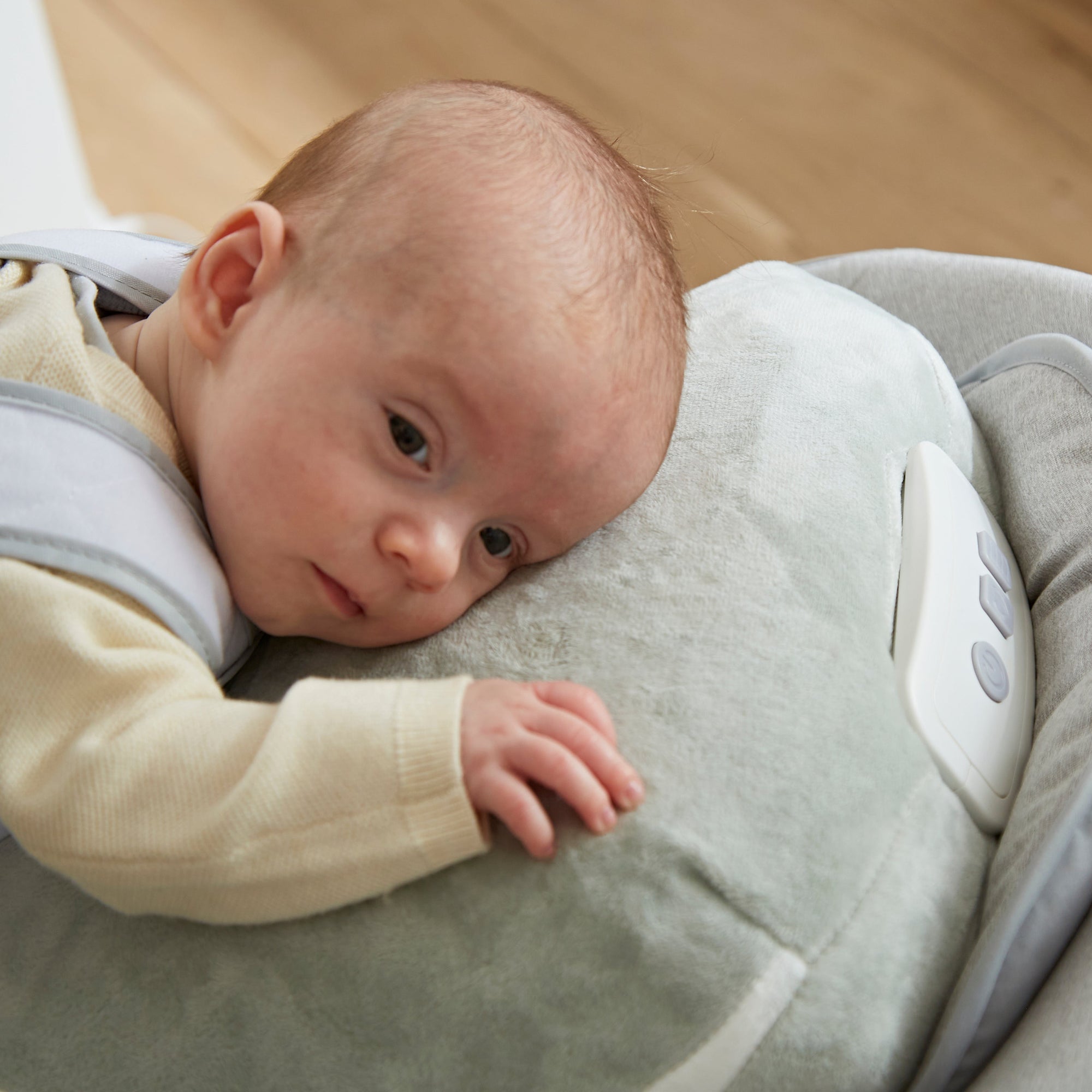The first six weeks of your newborn’s life are a very special time and a transformative time for both mother and baby. If you are feeling a little unsure about what to expect when you bring your new baby home from the hospital, rest assured that is completely natural. Whether you are an expecting mom who’s thinking ahead and trying to prepare or you’ve recently delivered your bundle of joy, we’ve compiled all of the key information you will need to know. Here are some of the things to expect during your baby’s first six weeks, as you start your new journey into motherhood.
The Umbilical Cord
The appearance of the stump of the umbilical cord may seem strange to new parents. It will start to turn black in the days following your baby’s birth and will naturally fall off within three weeks. While the stump is still intact it is important to keep it clean and dry to keep any potential infections at bay. Be sure to fold diapers down below the navel and only give your baby sponge baths until it falls off. After the cord stump has dropped off, you must continue to keep the area clean and dry to keep it free of infection while your newborn’s belly button heals.
The Spit Up

Most newborn babies will spit up after feeding which is very normal but could also be a sign of reflux. Two effective ways to aid your baby’s digestion and reduce the chances of reflux are to burp your baby frequently and thoroughly and to hold your baby in an upright position after feeding for at least thirty minutes.
The Poop
In the very early stages, newborn baby poop is blackish green. For new parents this may seem odd but rest assured it is completely normal. After the first few days you will notice the color changing and can come in all shades of green, yellow or brown in a vast variety of textures. Unsettling as this may be, it’s all normal. If you choose to breastfeed your baby, one of the perks is that your newborn’s poop is less likely to smell.
Feeding Your Baby
Baby-led feeding is the best way to feed your newborn. This means that you feed your baby on demand by responding to their hunger cues. At the beginning it may feel that you are constantly feeding your baby but as time goes on they will settle into a more regular pattern with fewer but longer feeds throughout the day. If you’re choosing to breastfeed your little one, check out How To Breastfeed A Newborn.
Diaper Changing

Your newborn will require regular diaper changes throughout the day. If a baby is left in a dirty diaper for too long then their delicate skin can become irritated and sore, leading to a diaper rash. As you prepare to change your baby, make sure that you have all of your supplies within reach. Although they won’t yet be able to roll over, it is a good idea to get into the habit of changing them on their changing mat on the floor, or on a changing table to keep them safe.
Bath Time
Keeping in mind the importance of keeping the umbilical cord stub dry, newborn babies don’t require a bath straight away. A lot of parents prefer to simply ‘top and tail’ their babies during the first few days. Top and tailing means that you have separate bowls of warm water (check the temperature to make sure it’s not too hot or too cold) and some cotton wool or a clean washcloth. Use the warm water to gently clean your baby’s face, neck and hands. Then clean your baby’s bottom in the same way.
Carefully dry your baby after washing them and pay special attention to skin folds and creases. Ensure the room is warm and you have everything you need easily to hand before undressing your baby to wash or bathe them. When you decide to start using a baby bath or bowl for bathing your baby it is important that you support them at all times, and never, ever leave them unattended. For more information and tips on bathing your newborn, check out our How To Bathe A Newborn blog post.
Getting Through the Night
Since their little bellies can’t hold much milk, newborns must be fed quite often which is one of the reasons why they wake so frequently during the night. Even at this early stage it is possible to introduce some healthy sleep habits which will stand by you as your baby develops. Here are our top tips for encouraging healthy sleep habits for your newborn.
- Establish a routine. Bathe, dress, play and take your baby for a walk in a similar sequence and at the same time every day.
- If you notice your newborn becoming drowsy, put them in their crib right away. This way your baby learns to fall asleep on their own and will associate their crib with bedtime.
- Keep night feedings quiet. When your baby is hungry and cries during the night you should attend to them as quickly as possible and do not play or talk while you feed them. This will allow your baby to fall asleep quickly again after their night time feed.
- There’s no need to put everything on hold and keep your household silent while your baby is sleeping. Ordinary sounds and activities usually will not disturb your newborn. It is important to let your baby sleep through whatever sound level is normal for your household so that they do not come to expect silence in order to drift off.
Soothing a Crying Baby

Crying is a newborn’s only means of communication. Your baby’s cry may be unsettling at first but the best thing to do is not to be alarmed and try to figure out what they are trying to tell you. The most likely reasons for your baby crying are hunger, a dirty diaper, bright lights, loud noises, trapped wind or they are uncomfortable. If you’ve run through your baby checklist and still your little one is inconsolable there are methods you can try to soothe your newborn.
- Experiment to discover the most comforting way for your baby to be rocked (side to side, back and forth), spoken and sung to
- Pat or rub their back
- Walk the floor with them
- Offer a finger, a breast, or a pacifier to suck on
- Swaddle your baby
All babies have their fussy period during the day (for many it's between 6 and 10 p.m.) and at a certain point there is nothing you can do. Although trying to calm a distressed infant can be exasperating, you should always respond to their cry.
The first six weeks can be a real challenge. You and your baby are getting to know each other while you simultaneously adjust to your new role as a mother. Hold on to the thought that right around that six-week mark you will be rewarded with one of the most beautiful milestones in your entire parental journey… your baby will begin to smile at you!
Related Blog:


